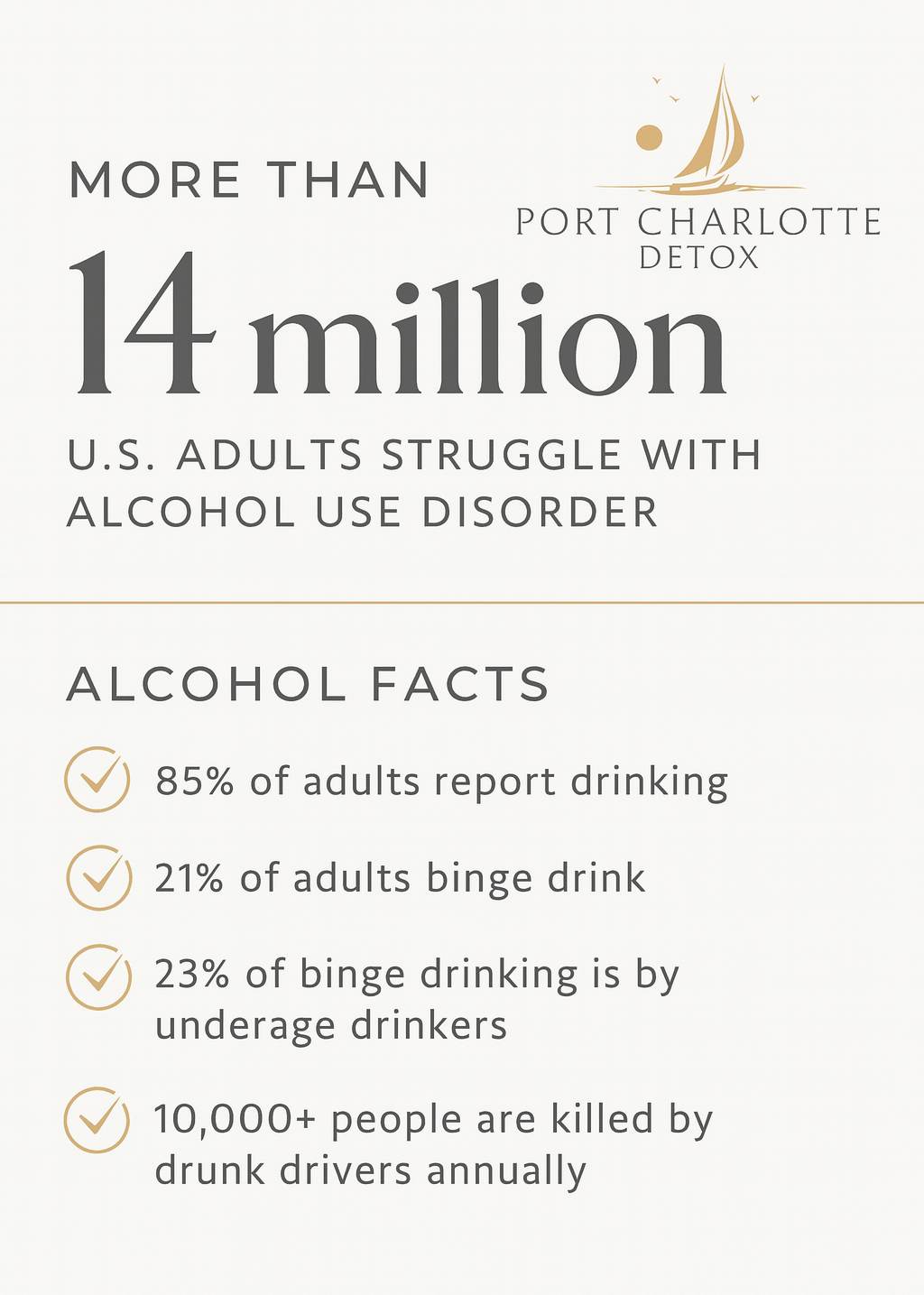Sometimes, the most heartbreaking thing isn’t what they’re doing—it’s how much it feels like you’ve already lost them. The child you raised—their spark, their rhythm, their hope—feels just out of reach. And when alcohol is part of the picture, it’s easy to second-guess what you’re seeing. Are you overreacting? Is it just a rough patch?
If you’re asking whether it’s time for alcohol addiction treatment, you’re already tuned in to something real. And you don’t have to figure this out alone.
Explore our alcohol detox and treatment options in Port Charlotte.
You’ve Done Everything Right—And It’s Still Hard
As a parent, love often looks like fixing. Problem-solving. Standing between your child and their worst choices. But when alcohol enters the mix, the rules change. You may find yourself watching things you can’t stop—cancelled classes, sketchy new friends, lies that don’t even make sense. And underneath it all, a grief no one prepared you for.
What makes this harder is the silence. The guilt. The feeling that you’re not allowed to say how much it hurts—because they’re the one struggling. But you matter in this story, too.
Signs That Alcohol Use Has Become Something More
Many young adults experiment with alcohol. But experimentation becomes dangerous when it begins to chip away at who they are—or how they function.
You might notice:
- Drinking more frequently or earlier in the day
- Using alcohol to numb pain or manage stress
- Avoiding family or withdrawing from longtime friends
- Failing classes, skipping work, or losing motivation
- Secretive behavior, lying, or defensiveness
- Emotional volatility, aggression, or sudden silence
These aren’t just “phases.” They’re indicators that something deeper is happening—and that your child may need more support than they can accept on their own.
What Alcohol Addiction Treatment Looks Like
At Port Charlotte Detox, alcohol addiction treatment begins with understanding the full picture—physical, emotional, and environmental.
Step 1: Medical Alcohol Detox
This is often the first and safest step when physical dependence is present. Detox includes:
- 24/7 clinical monitoring
- Medication to manage withdrawal symptoms
- Rest and nutritional support
- Emotional stabilization
Step 2: Therapeutic Treatment Planning
After detox, our team helps create a plan tailored to your child’s needs. This might include:
- Individual therapy (addressing trauma, mental health, or patterns)
- Group therapy (building support and healthy connection)
- Family therapy (helping you repair and rebuild together)
- Continued care options (residential, PHP, or outpatient)
Treatment isn’t about punishment. It’s about creating space to heal what’s underneath the drinking—and reconnecting with what matters.
If you’re looking for alcohol addiction treatment in Charlotte County, our programs are designed to support the whole family, not just the individual.
“But They Don’t Want Help”—Now What?
It’s one of the most helpless feelings: you see the danger, but they don’t. Or they do, but they’re stuck. Afraid. Ashamed. Angry.
Here’s what you can do:
- Stay connected: Your presence—calm, steady, honest—can be more powerful than you know.
- Set boundaries: Love includes limits. You don’t have to accept unsafe behavior to prove you care.
- Offer resources: Let them know help exists and that you’ll walk with them if they choose to reach out.
- Get support for yourself: Family counseling, Al-Anon, and parent-focused therapy can be lifesaving.
Their readiness may not come on your timeline. But your hope, grounded in action, can plant a seed.
It’s Never “Too Early” or “Too Late” for Treatment
Some parents wait until there’s a DUI, a hospital visit, or total collapse. Others seek help when things are still gray—functional on the surface, but deeply off beneath it.
Both are valid. Both deserve care.
Early intervention can prevent years of struggle. But relapse doesn’t erase the progress already made. In fact, it often gives treatment a new depth and honesty. And returning to treatment isn’t failure—it’s courage.
A Look Inside Our Local Care
If you’re searching for alcohol addiction treatment in Fort Myers FL or surrounding areas, we invite you to learn about the difference a local, medically supervised detox can make.
Our facility is designed for privacy, calm, and dignity. Your child won’t feel like a number. And neither will you. We work with families throughout Charlotte County and Lee County, offering clear communication, family support, and post-detox planning to help you and your loved one take the next right step.
The Grief No One Talks About
You may not call it grief—but that’s what it is. Grieving the version of your child you knew. The relationship you hoped for. The simplicity that’s been replaced by fear.
This grief is real. And it deserves care.
Treatment won’t erase that pain overnight. But it can open a door. To healing. To reconnection. To something new—not the past restored, but the future reclaimed.
Frequently Asked Questions About Alcohol Addiction Treatment
How do I know if my 20-year-old needs professional treatment or just support?
If alcohol use is interfering with their daily life—relationships, school, health, or safety—it’s time to talk to a professional. Support and therapy may help early on, but if there’s denial, escalation, or withdrawal symptoms, detox and structured care are often necessary.
What if my child refuses to go to treatment?
You can’t force willingness, but you can create conditions where honesty, boundaries, and options are clear. Family interventions, motivational interviewing, and support from a treatment center can help nudge the door open.
Is alcohol detox really necessary?
If your child shows signs of physical dependence—needing more to feel the same, shaking, or feeling sick when not drinking—medical detox is crucial. It ensures safety during withdrawal and reduces the risk of complications like seizures or delirium tremens.
Can I be involved in the treatment process?
Yes. In fact, family involvement often strengthens outcomes. At Port Charlotte Detox, we welcome parent participation during assessment, treatment planning, and aftercare coordination. Healing the family system is part of the work.
What happens after detox?
After detox, our team helps determine the best next step based on your child’s needs. That might be a residential program, partial hospitalization (PHP), intensive outpatient (IOP), or referrals to trusted community partners.
📞 You Don’t Have to Wait Until It Gets Worse
Call (844)336-2690 or visit our alcohol addiction treatment program in Port Charlotte, Florida to learn how we can support your family—today.



